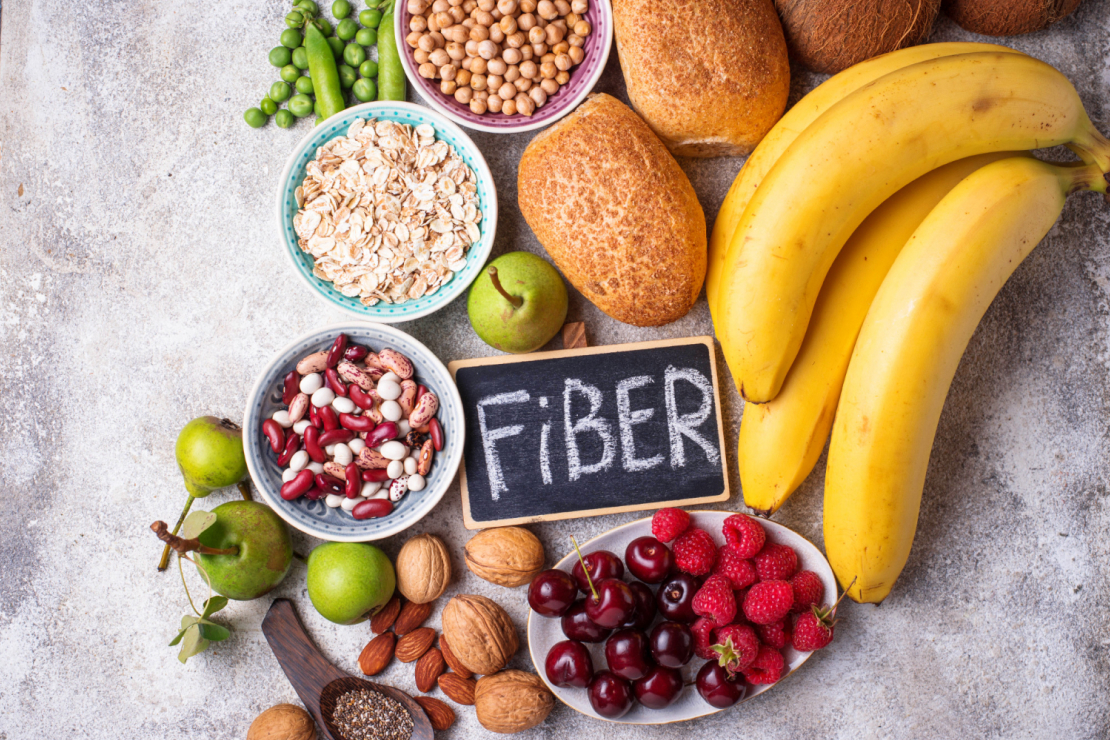Why Water Is Important for the Body: Functions, Benefits, and Daily Needs
Discover the essential role of water in human health, from vital bodily functions to daily hydration needs. Learn about water's importance for survival, optimal health, and how much you should drink daily.

Table of Content
The Essence of Life: Understanding Water's Vital Role
Water is often called the essence of life, and for good reason. As the most abundant compound in the human body, making up about 60% of our total body weight, water is essential for every cellular function and biological process. Understanding its importance goes beyond simple hydration—it's about recognizing water as the fundamental medium of life itself.
Importance of Water in Human Life
Beyond its biological functions, water plays a crucial role in our daily lives and overall well-being. Understanding this broader impact helps us appreciate why water is often called "life itself."
Daily Life and Survival
- Personal Hygiene
Essential for cleanliness and disease prevention
- Food Preparation
Cooking, cleaning, and food safety
- Agriculture
Crop irrigation and livestock maintenance
- Industrial Processes
Manufacturing and production
Mental and Physical Performance
- Cognitive Function
Improves focus and mental clarity
- Energy Levels
Maintains vitality throughout the day
- Athletic Performance
Enhances physical capabilities
- Recovery
Speeds up post-exercise recovery
The Importance of Water on Earth
Water's significance extends far beyond human health, playing a vital role in Earth's ecosystems and climate systems:
Environmental Functions
- Climate Regulation
Oceans absorb 93% of climate warming
- Ecosystem Support
Sustains biodiversity and habitats
- Weather Patterns
Drives global precipitation cycles
- Geological Processes
Shapes Earth's surface through erosion and deposition
Global Water Resources
| Water Type | Percentage | Accessibility | Primary Uses |
|---|---|---|---|
| Oceans | 97.2% |
Limited without treatment
Requires desalination |
Climate regulation
Marine ecosystems |
| Ice Caps | 2.15% |
Locked in ice
Climate sensitive |
Climate stability
Sea level regulation |
| Groundwater | 0.61% |
Variable access
Requires extraction |
Agriculture, drinking
Industrial use |
| Fresh Surface Water | 0.04% |
Most accessible
Vulnerable to pollution |
Direct human use
Ecosystem support |
Essay Format: The Importance of Water
Short Essay (50 Words)
Water is the foundation of life on Earth. It sustains human health, enables biological processes, and maintains environmental balance. From cellular function to global climate regulation, water's importance cannot be overstated. Without it, life as we know it would cease to exist.
Medium-Length Paragraph
Water is essential for all forms of life and plays a crucial role in maintaining Earth's delicate balance. In the human body, it comprises about 60% of our weight and facilitates vital functions like nutrient transport, temperature regulation, and waste removal. Beyond individual health, water shapes our environment through weather patterns, erosion, and ecosystem support. It drives agricultural production, industrial processes, and urban development. The conservation of this precious resource is crucial for sustainable development and the survival of future generations. Understanding water's importance helps us appreciate why it's often called "blue gold" and emphasizes our responsibility to protect and preserve it.
Key Points Format
- Fundamental to Life
Essential for all biological processes
- Human Health
60% of body composition, vital for survival
- Environmental Impact
Climate regulation and ecosystem maintenance
- Economic Significance
Agriculture, industry, and urban development
- Future Sustainability
Conservation crucial for coming generations
Water's Critical Functions in the Human Body
Before diving into specific benefits, let's understand the fundamental roles water plays in our body's daily operations:
| Body System | Water's Function | Impact of Dehydration | Optimal Hydration Benefits |
|---|---|---|---|
| Circulatory System |
Blood volume maintenance
Transports nutrients and oxygen |
Decreased blood volume
Increased heart rate, fatigue |
Efficient nutrient delivery
Better cardiovascular health |
| Digestive System |
Nutrient absorption
Waste elimination |
Constipation, poor digestion
Reduced nutrient uptake |
Smooth digestion
Regular bowel movements |
| Thermoregulation |
Temperature control
Sweating mechanism |
Heat exhaustion risk
Poor temperature control |
Stable body temperature
Better heat tolerance |
| Renal System |
Toxin removal
Electrolyte balance |
Kidney strain
Toxin accumulation |
Efficient waste removal
Healthy kidney function |
| Joint Function |
Lubrication
Shock absorption |
Joint stiffness
Increased friction |
Smooth movement
Joint protection |
Daily Water Needs and Hydration Guidelines
Understanding your daily water needs is crucial for maintaining optimal health. While the common "8 glasses a day" rule is a good starting point, individual needs vary based on several factors. Proper hydration is essential for every bodily function, from cognitive performance to physical endurance, and maintaining the right balance is key to overall wellness.
The human body has sophisticated mechanisms for regulating water balance, but modern lifestyles, environmental conditions, and physical activities can challenge these natural systems. Understanding your personal hydration needs helps maintain optimal body function and prevents both dehydration and, though less common, overhydration.
Factors Affecting Daily Water Needs
- Body Weight and Composition
Larger bodies typically require more water (30-35ml per kg of body weight)
- Activity Level
Exercise increases water needs by 400-800ml per hour of activity
- Climate and Environment
Hot or humid weather increases fluid requirements by 500-1000ml per day
- Health Status
Certain conditions may require adjusted intake (fever increases needs by 200ml per degree)
- Altitude
Higher altitudes increase water needs by 500-1000ml per day
- Diet Composition
High protein or salty diets require additional 500-700ml daily
- Pregnancy and Breastfeeding
Additional 300-700ml needed daily depending on stage
- Age
Elderly need more conscious hydration due to reduced thirst signals
Recommended Daily Intake Guidelines
While individual needs vary, scientific research has established baseline recommendations for different population groups. These guidelines account for average activity levels and environmental conditions, serving as a starting point for personalized hydration strategies.
| Population Group | Daily Water Intake | Additional Needs | Signs of Adequate Hydration |
|---|---|---|---|
| Adult Males | 3.7 liters (15.5 cups)
Including 20% from food sources | +500ml per hour of exercise
+300ml for every 5°C above 25°C | Clear to light yellow urine
Urination every 3-4 hours |
| Adult Females | 2.7 liters (11.5 cups)
Including 20% from food sources | +500ml per hour of exercise
Adjust during menstruation | Clear to light yellow urine
Regular urination pattern |
| Pregnant Women | 3.0 liters (12.5 cups)
Increases by trimester | +300ml for pregnancy
+500ml in third trimester | Regular urination
Minimal swelling |
| Elderly (65+) | 2.0-2.5 liters (8-10 cups)
Monitor intake actively | Adjusted for medications
Consider medical conditions | Moist mucous membranes
Skin elasticity maintenance |
| Athletes/Active Adults | 4.0-6.0 liters (16-24 cups)
Based on intensity level | +750ml per hour of intense exercise
Electrolyte replacement needed | Performance maintenance
Quick recovery between sessions |
10 Essential Functions of Water in the Body
Water's role in the human body extends far beyond basic hydration. Each function is intricately connected to our survival and optimal performance, making water the most crucial nutrient for life. Understanding these functions helps appreciate why maintaining proper hydration is vital for health and wellness.
1. Cellular Function and Survival
At the microscopic level, water is the primary medium for cellular operations. Every cell in our body relies on water for its basic functions, from maintaining structural integrity to facilitating chemical reactions. Without adequate hydration, cellular function deteriorates, leading to systemic health issues.
- Maintains cell structure
Prevents cell shrinkage and damage through osmotic balance
- Facilitates enzyme reactions
Essential for metabolism and energy production (ATP synthesis)
- Transports nutrients
Enables cellular nourishment through diffusion and active transport
- Removes waste products
Maintains cellular health through efficient waste elimination
- DNA Protection
Stabilizes DNA structure and supports repair mechanisms
- Protein Folding
Essential for proper protein structure and function
2. Temperature Regulation
Water's unique thermal properties make it ideal for body temperature regulation. Through its high heat capacity and evaporative cooling mechanism, water helps maintain our core temperature within the narrow range necessary for survival. This sophisticated system responds to both internal and external temperature changes.
- Sweating mechanism
Primary cooling system, evaporating 1L of sweat removes 580kcal of heat
- Blood volume regulation
Helps distribute heat through vasodilation and vasoconstriction
- Core temperature stability
Maintains optimal range of 36.5-37.5°C
- Exercise performance
Prevents overheating during physical activity
- Cold adaptation
Supports brown fat activation for cold resistance
- Metabolic regulation
Influences basal metabolic rate and energy expenditure
3. Nutrient Transport
The circulatory system, composed primarily of water, serves as our body's highway for nutrient delivery. Water's unique solvent properties allow it to carry both water-soluble and fat-soluble nutrients, along with oxygen and hormones, to every cell in the body. This transport system is crucial for maintaining cellular health and organ function.
- Blood composition
90% water by volume, carrying vital nutrients and gases
- Nutrient absorption
Enhances uptake in small intestine through aqueous solution
- Oxygen delivery
Vital for cell function, transporting 98% of oxygen to tissues
- Hormone transport
Enables endocrine signaling throughout the body
- Mineral distribution
Carries electrolytes and minerals to cells
- Glucose transport
Essential for energy delivery to tissues
4. Waste Elimination
Water is fundamental to our body's detoxification systems. Through various pathways including urination, defecation, and sweating, water helps remove metabolic waste products, toxins, and excess substances. This continuous cleaning process is essential for maintaining health and preventing the buildup of harmful compounds.
- Kidney function
Filters 120-150 liters of blood daily, removing waste
- Urination
Primary waste removal, 1-2 liters daily output
- Digestive health
Prevents constipation, maintains regular bowel movements
- Toxin removal
Supports liver and kidney detoxification processes
- Lymphatic system
Helps remove cellular waste and maintain immunity
- Skin cleansing
Removes toxins through perspiration
5. Joint and Tissue Protection
Water plays a crucial protective role in our musculoskeletal system. Through specialized fluid compartments and hydrated tissues, it provides cushioning, lubrication, and shock absorption. This protection is essential for maintaining mobility and preventing wear and tear on joints and organs.
- Shock absorption
Protects joints during movement, absorbing up to 5x body weight impact
- Cartilage hydration
Maintains flexibility, 65-80% water content
- Spinal cord protection
Cushions nervous system through cerebrospinal fluid
- Muscle function
Prevents cramping, maintains 75% water content
- Organ protection
Provides cushioning through interstitial fluid
- Synovial fluid maintenance
Reduces friction in joints during movement
Signs of Dehydration
Recognizing dehydration early is crucial for preventing serious health issues:
| Severity Level | Physical Signs | Mental Signs | Required Action |
|---|---|---|---|
| Mild (1-3%) |
Thirst, dry mouth
Dark urine |
Mild fatigue
Slightly reduced focus |
Drink water
Monitor symptoms |
| Moderate (4-6%) |
Decreased urination
Headache |
Irritability
Difficulty concentrating |
Oral rehydration
Rest and monitor |
| Severe (7%+) |
Rapid heartbeat
Dizziness |
Confusion
Delirium possible |
Medical attention
Immediate treatment |
Water Conservation Tips
While understanding water's importance for health, it's equally crucial to consider conservation:
- Fix leaking taps and pipes
Saves up to 20,000 liters annually
- Use water-efficient appliances
Reduces consumption by 30-50%
- Collect rainwater
Sustainable garden irrigation
- Reuse greywater
Safe for non-drinking purposes
Frequently Asked Questions
What are 5 reasons why water is important?
- Essential for cellular function and survival
- Regulates body temperature
- Transports nutrients and oxygen
- Removes waste products
- Protects joints and organs
How much water should I drink daily?
- Adult males: 3.7 liters (15.5 cups)
- Adult females: 2.7 liters (11.5 cups)
- Additional needs during exercise or hot weather
- Individual needs vary based on activity and climate
What happens if you don't drink enough water?
- Decreased physical performance
- Impaired cognitive function
- Digestive problems
- Increased risk of kidney stones
- Headaches and fatigue
Is it better to drink warm or cold water?
- Warm water aids digestion
- Cold water cools body temperature
- Room temperature is best for absorption
- Personal preference affects consumption
"Water is life's matter and matrix, mother and medium. There is no life without water." - Albert Szent-Györgyi, Nobel Prize winner in Physiology
The Bottom Line
Water is truly the essence of life, playing countless crucial roles in maintaining our health and well-being. From cellular function to temperature regulation, proper hydration is essential for every aspect of human health. Understanding and maintaining proper hydration isn't just about drinking when thirsty—it's about consciously ensuring adequate intake throughout the day.
Remember that while individual water needs vary, staying properly hydrated is one of the simplest yet most effective ways to maintain good health. Pay attention to your body's signals, adjust intake based on activity and climate, and make water your primary beverage choice for optimal health and function.
Start Your Health Journey Today
Download Macro Tracking AI and take control of your nutrition with the power of artificial intelligence.
Download on App Store

